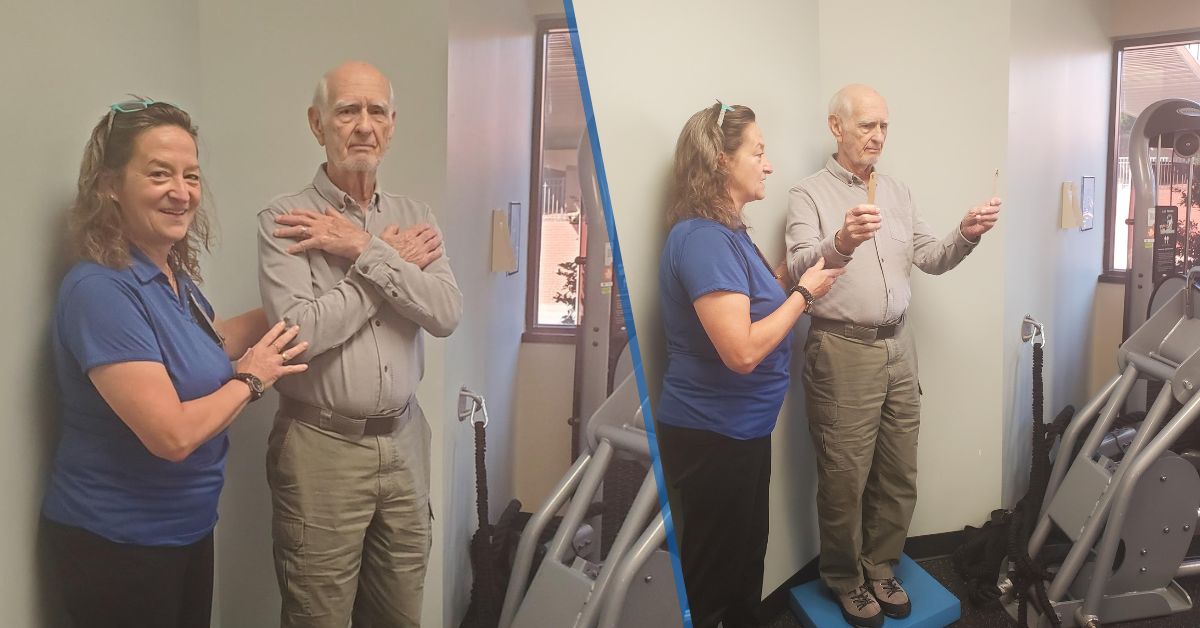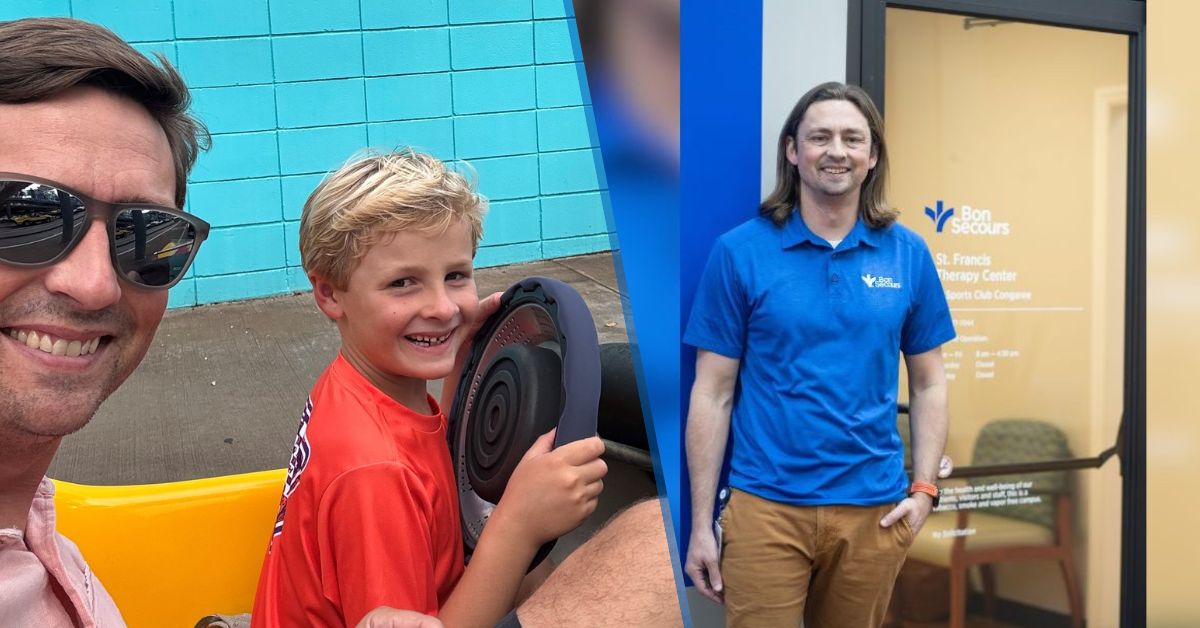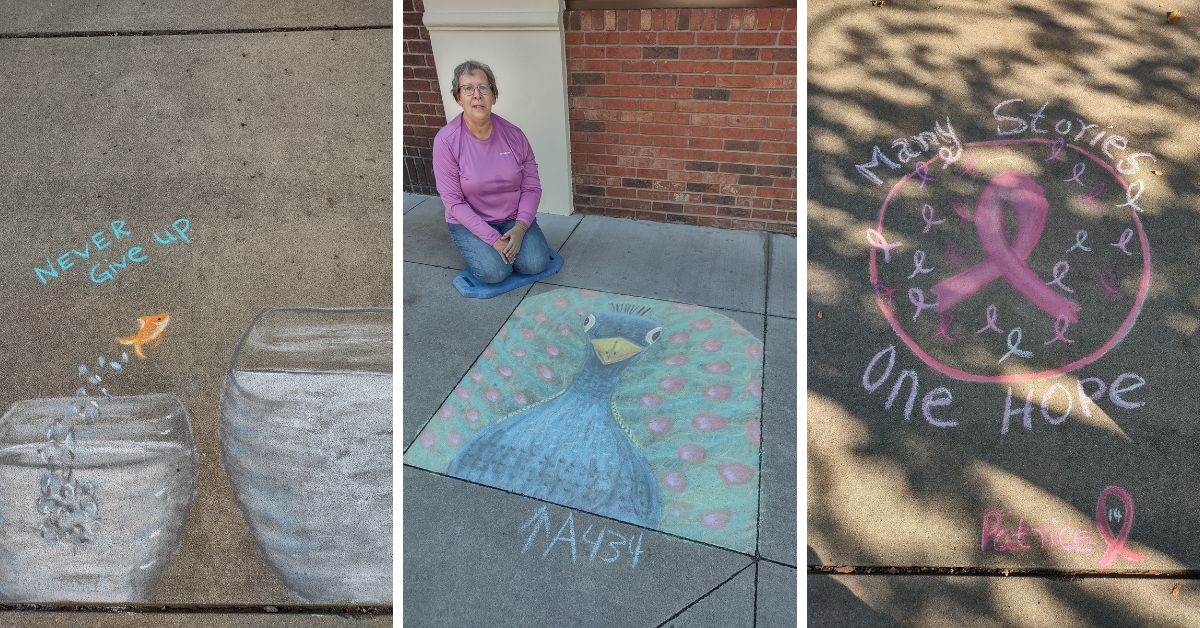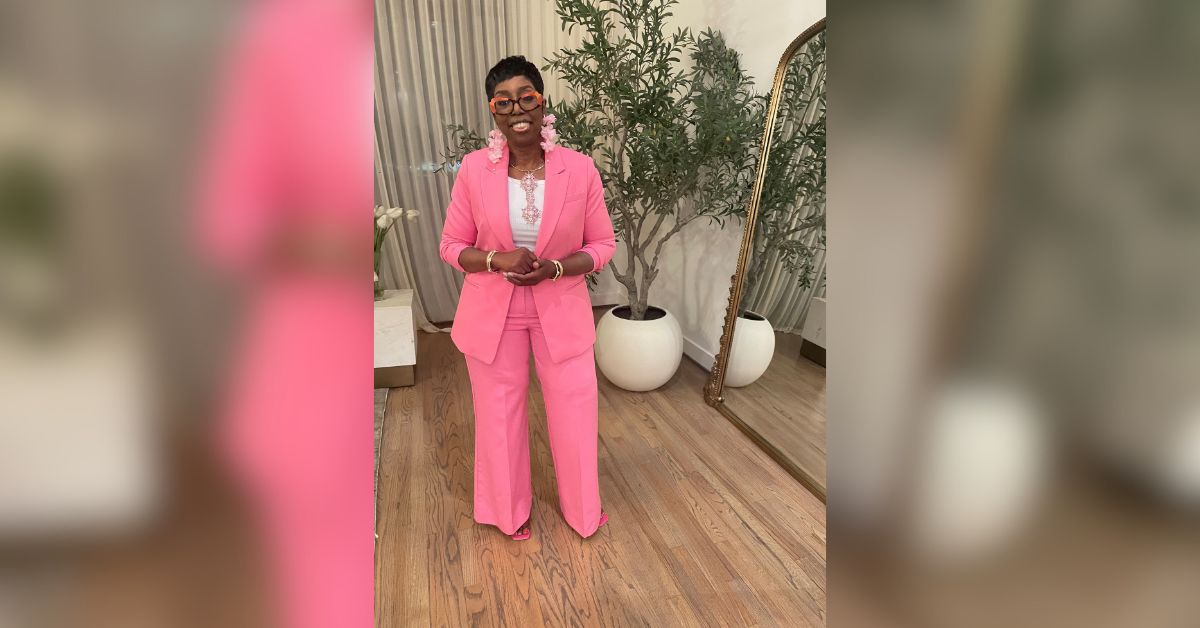This week is Spiritual Care Week. As a faith-based health care system, Bon Secours chaplains play a vital role in our hospitals. Over the years, many patients and their families have benefited from their compassionate support and care.
The role of the chaplain is to meet another wherever they are on their spiritual journey. They seek to nurture, affirm and reflect on a person’s core beliefs, values and identity as they navigate the challenges of health care including illness, trauma, grief and dying. Chaplains are also increasingly supporting hospital team members, especially throughout the COVID-19 pandemic.
“Our goal is to sit with life’s unknowns, doubts and existential questions while supporting another’s resources and meaningful relationships for healing and resilience in the face of health crises,” Leigh Mackintosh, a hospice chaplain in our Richmond market, shares. “Whether we are working with staff struggling with burnout, patients overwhelmed by a new diagnosis or grieving families, chaplains are adept at balancing guidance with a listening ear, challenge with affirmation.”
To highlight the importance of our chaplains and the spiritual care services we offer at Bon Secours, we sat down with Leigh to shed some light on her role in the ministry and what it’s been like to serve during this difficult time.
Q: What has it been like to serve as a hospice chaplain throughout the COVID-19 pandemic?
A: Serving as a chaplain during the COVID-19 pandemic has been a challenging, humbling and rewarding experience as we’ve stepped into a new frontier. This opportunity has stretched me to find new ways to build therapeutic relationships and offer liturgies through digital connections, while affirming the power of an in-person, socially distanced encounter. Working on the frontlines has helped me put into perspective what is really important in my life. This, in turn, enriches my hospice work as I explore what quality of life and legacy means with patients.
Q: What challenges have you faced recently?
A: Perhaps the greatest challenge I face, alongside my colleagues, is finding a sense of balance and self-care. COVID-19 has forced me to be intentional about carving out time to live life: to laugh with colleagues, engage in fun and nurture peace in the quiet stillness.
Q: Has the pandemic created any new ways of working?
A: The pandemic has created incredible opportunities for innovation and growth in chaplaincy. It has created ways for individuals to connect who previously were isolated. For instance, a palliative care and hospice patient support group led via video chat has opened pathways for others to experience community and foster strength together. Additionally, it has enhanced the quality of phone visits for those who prefer not to be seen on a virtual call and prompted more engagement with families who live at a distance. Recently, I was able to offer prayers with a family member over the phone at the bedside of a hospice patient.
Q: How do you approach supporting staff struggling with burnout?
A: As I support staff, I hope to remind them that being fully human is a courageous and sacred calling. One that requires us to honor our limitations and strive toward greater authenticity and compassion rather than superhuman-ness. I approach staff with humor, mutual sharing of stories, listening and being honest about my struggles to give others space to share theirs.
Q: Can you share some tips for those struggling with grief or burnout?
A: Of course!
- Make time to be with the people and things you love.
- Be gentle with yourself and let go of expectations to be and do the things you always have been and done before the pandemic. Embrace your humanness.
- Take time to appreciate beauty and transcendence in art, music and/or nature.
- Silence is golden, laughter is divine. If you don’t like to sit still, consider a walk, a swim or even kayaking on your own or with friends.
- It’s not a sprint, it’s not a marathon. It won’t be over in a day, a week, a month or a year so take it one step, one day at a time.
Q: How you do you find strength to support others during this difficult time in their lives?
A: I believe that you cannot offer a listening, healing space to others if you do not nurture such a space within. Engaging in contemplative practices from Ignatian spirituality and Buddhist mindfulness helps me bring a Zen sense to others during the most difficult times in others’ lives.
Hospice and the pandemic have taught me that there is so much living in dying. Death and grief may leave a lasting impression on people’s lives, but love has the last word.
Learn more about the spiritual care services we offer at Bon Secours.





